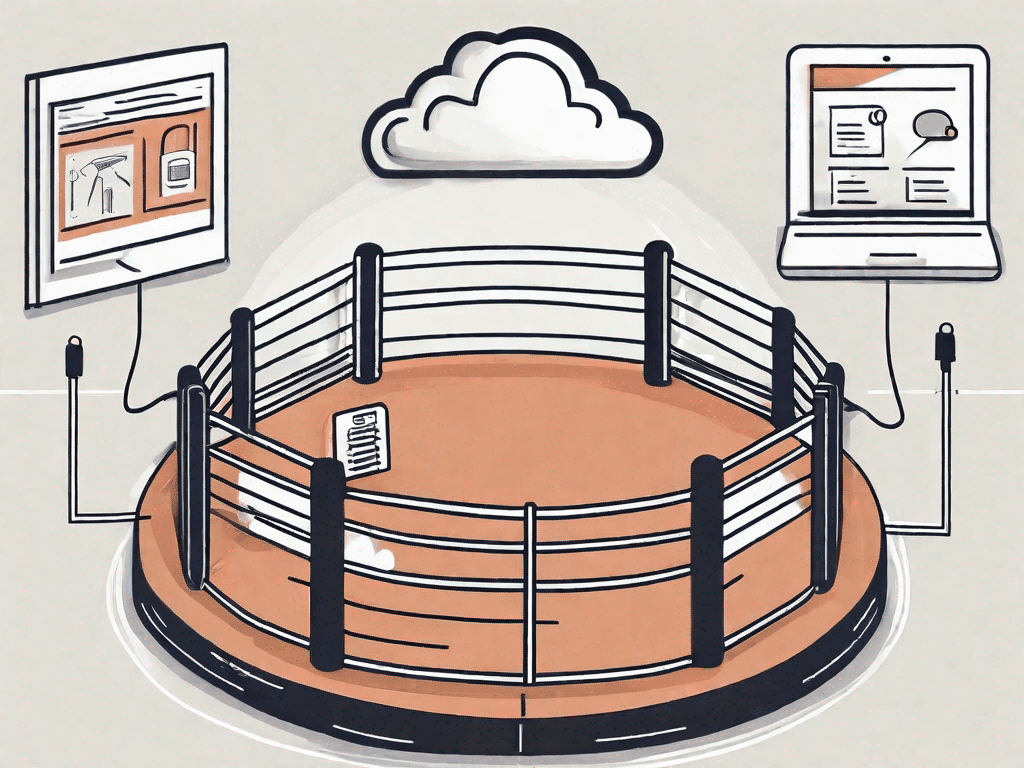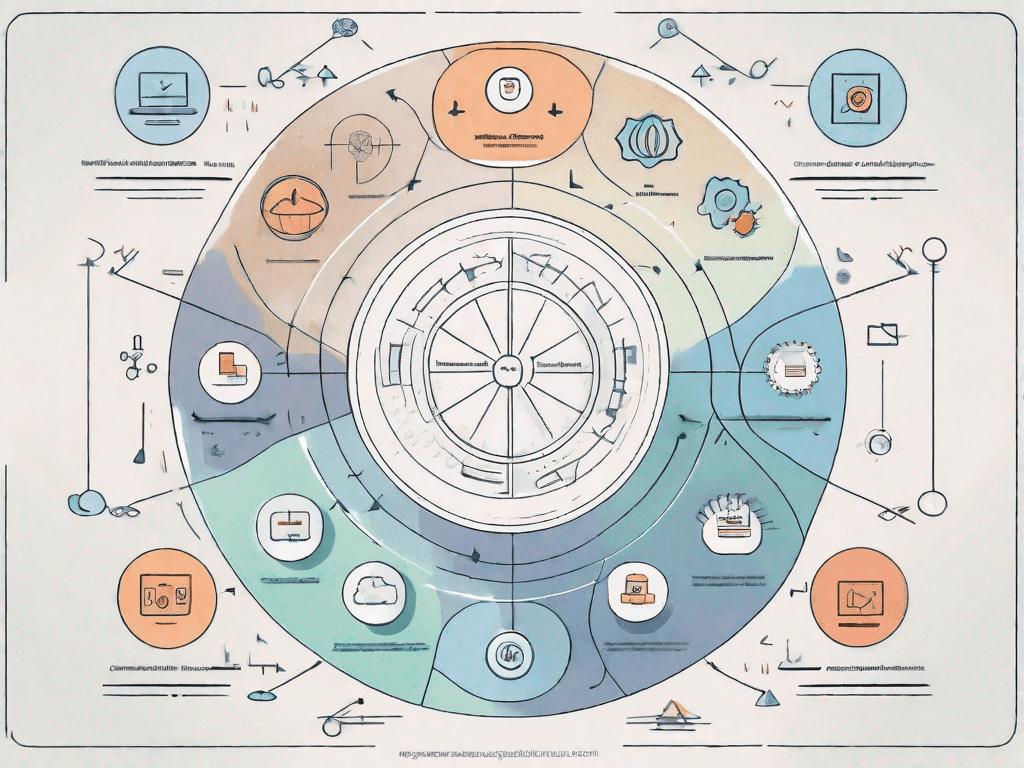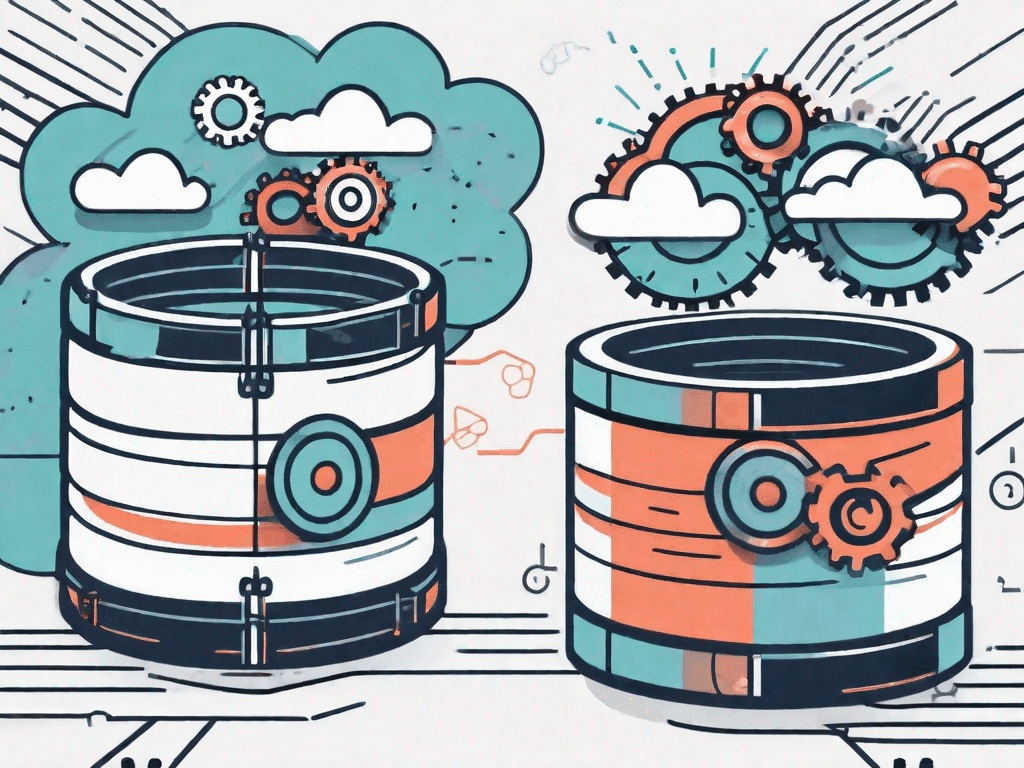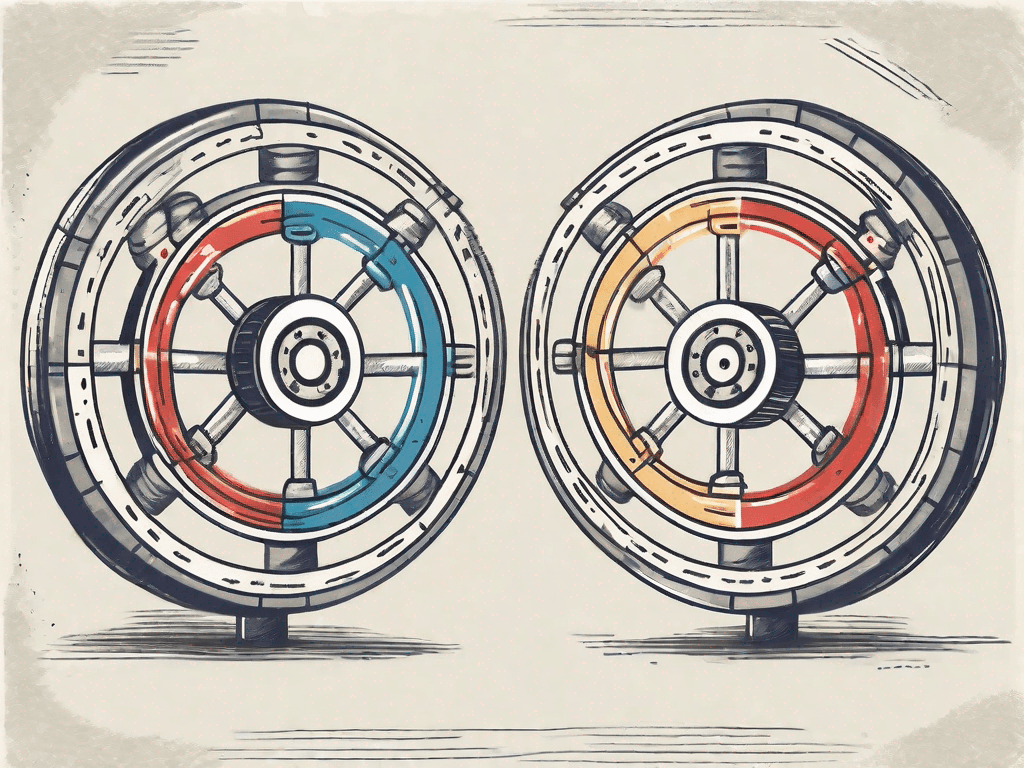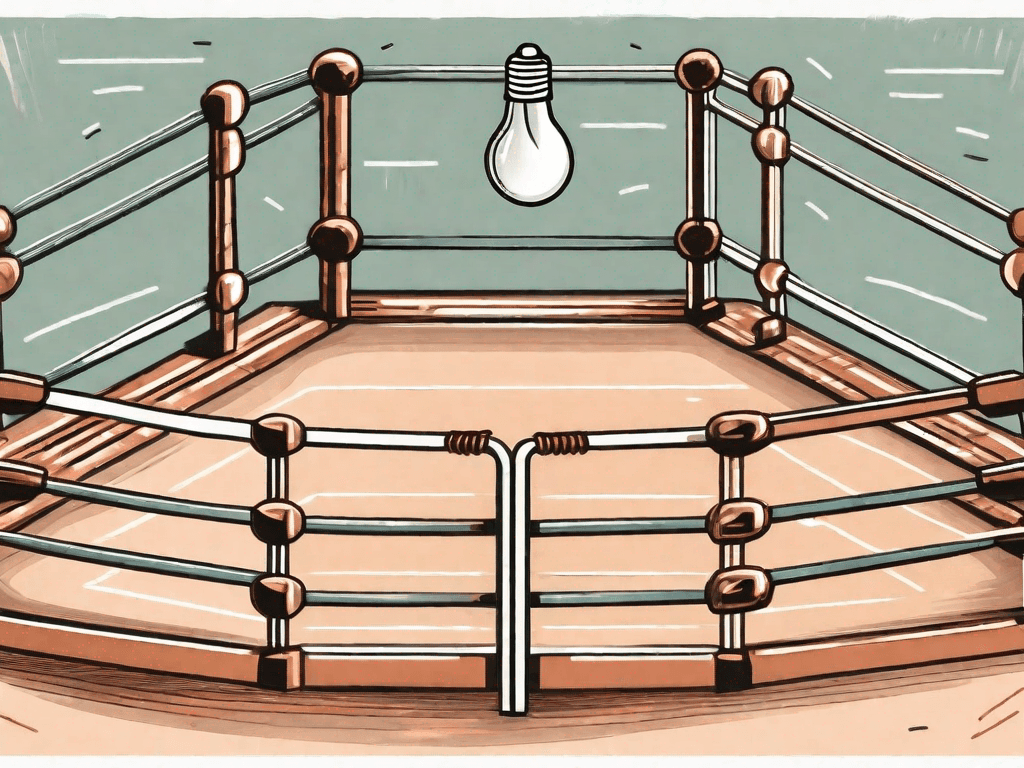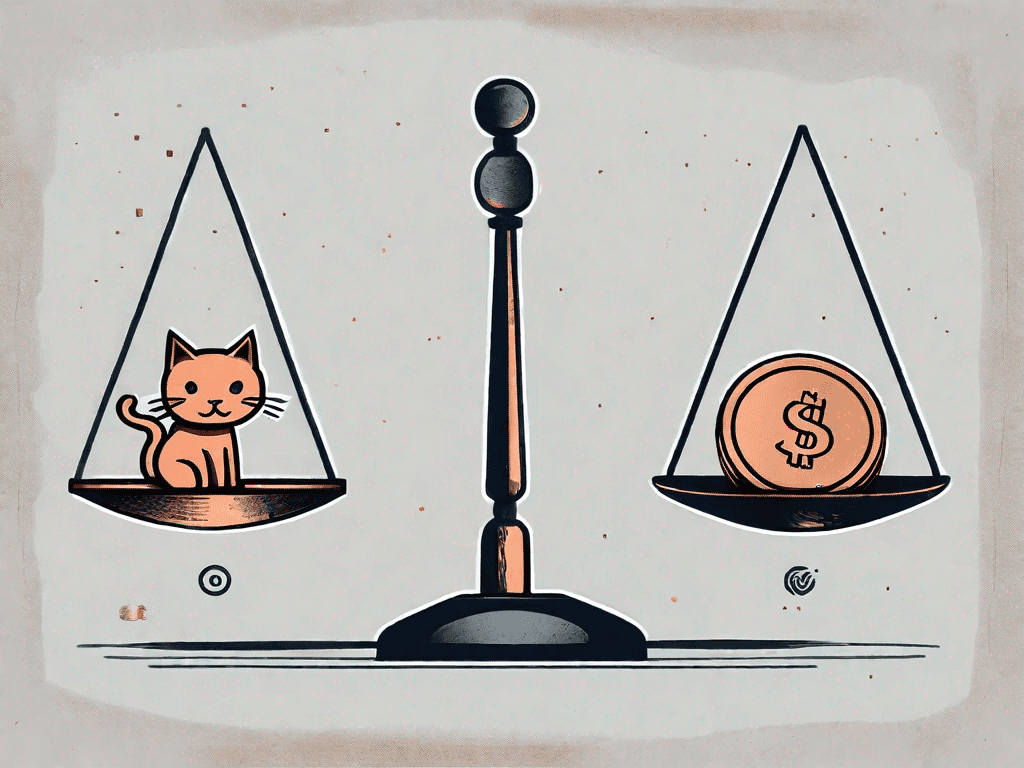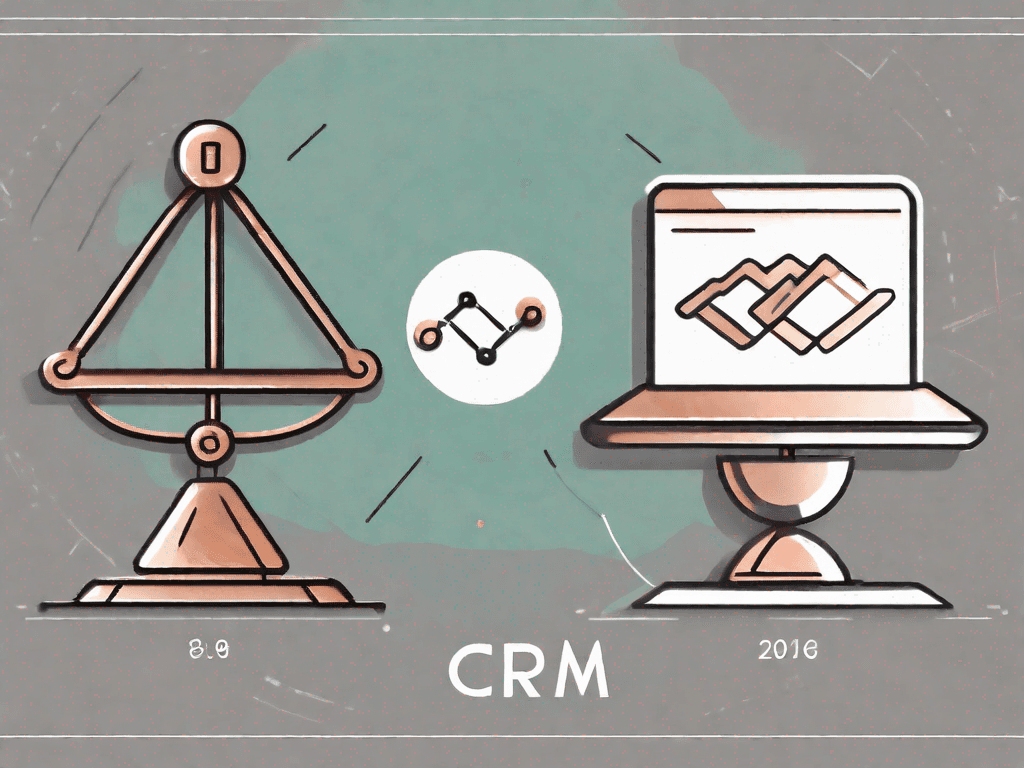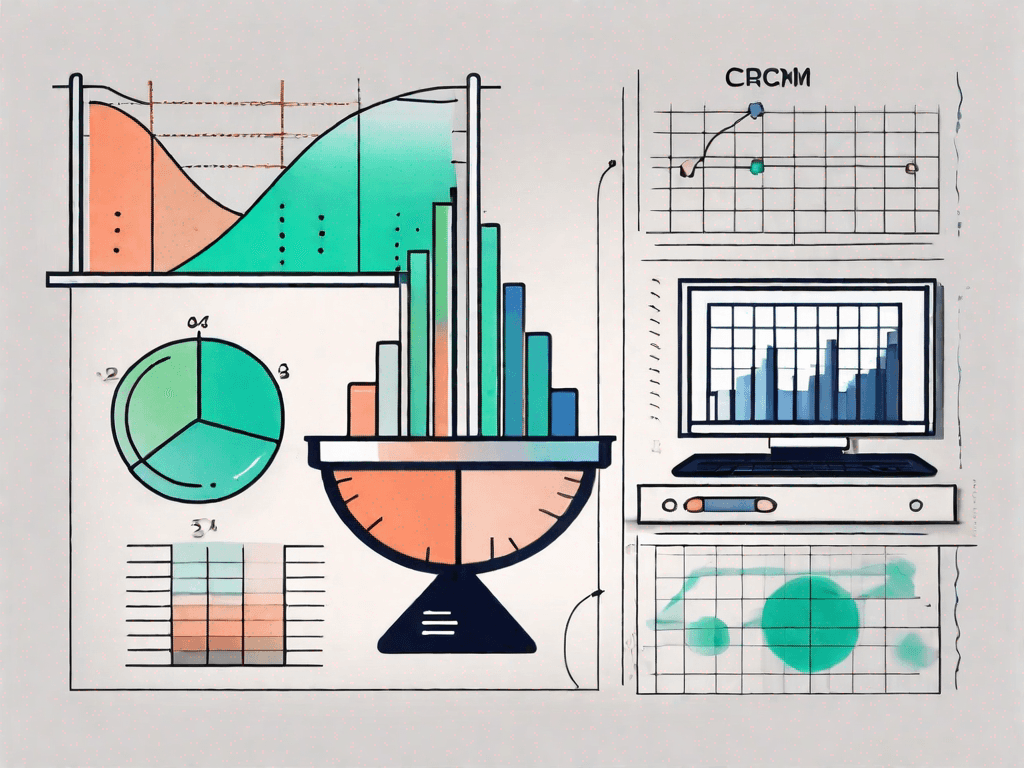
Close CRM vs Spreadsheets: Which CRM is the Best?
In today's digital age, Customer Relationship Management (CRM) tools are instrumental in businesses' success. One of the key decisions companies face is choosing between Close CRM and Spreadsheets for their CRM needs. While both have their merits, it's crucial to understand their pros and cons to make an informed choice. In this article, we will dive into the comparison of Close CRM and Spreadsheets, evaluate their pricing models, explore their integrations, and ultimately determine which CRM is the best for different types of users
Pros and Cons of Close CRM and Spreadsheets
Before we delve into the specifics, let's examine the advantages and disadvantages of both Close CRM and Spreadsheets.
Close CRM and Spreadsheets are two popular tools used by businesses for managing and organizing data. Each option has its own set of pros and cons, and understanding these can help businesses make an informed decision about which tool is best suited for their needs.
1. Pros of Close CRM
Close CRM shines in its efficient lead management capabilities. With its intuitive interface and powerful features, it allows businesses to effectively track and nurture leads, ultimately boosting sales productivity. Close CRM offers a range of tools and functionalities that streamline the sales process, such as automated lead scoring and email outreach. These features help sales teams prioritize their efforts and focus on high-potential leads, leading to increased conversion rates.
Additionally, Close CRM offers robust reporting and analytics, allowing users to gain valuable insights into their sales performance. The ability to track key metrics and analyze data helps businesses identify trends, make data-driven decisions, and optimize their sales strategies.
2. Cons of Close CRM
Despite its numerous advantages, Close CRM may not be suitable for everyone. Some users find the learning curve to be steep, especially for those unfamiliar with CRM tools. The initial setup and customization process can be time-consuming and require technical expertise.
Moreover, Close CRM might be perceived as pricey for small businesses with limited budgets. The cost of licensing and ongoing maintenance can be a significant investment, especially when compared to free or low-cost alternatives like Spreadsheets.
3. Pros of Spreadsheets
Spreadsheets, on the other hand, offer simplicity and familiarity. They have been widely used in various business functions, making them easily accessible and user-friendly. Most professionals are already familiar with basic spreadsheet functions, such as data entry, sorting, and basic calculations.
Moreover, Spreadsheets can be customized to fit specific needs, providing users with flexibility in managing their data. Users can create custom formulas, pivot tables, and charts to analyze and visualize their data in a way that best suits their requirements.
4. Cons of Spreadsheets
However, Spreadsheets fall short when it comes to scalability and collaboration. As businesses grow, managing data on Spreadsheets becomes increasingly complex and prone to errors. With larger datasets, it becomes challenging to maintain data integrity and ensure accuracy.
Additionally, collaborating on spreadsheets can be challenging, especially when multiple team members need to access and update information simultaneously. Version control becomes a concern, and it's easy for conflicting changes to occur, leading to confusion and potential data loss.
Key Differences between Close CRM and Spreadsheets
Now that we have examined the pros and cons of Close CRM and Spreadsheets, it's important to understand the key differences between these two options.
Close CRM offers a centralized database that ensures data consistency and accuracy, while Spreadsheets require manual data entry, increasing the risk of errors. With Close CRM, data is automatically updated and synced across the system, reducing the chances of duplicate or outdated information.
Close CRM provides automation features such as lead scoring and email outreach, enhancing sales efficiency. Spreadsheets lack these automation capabilities, requiring manual effort for sales tasks. Close CRM's automation features save time and allow sales teams to focus on building relationships and closing deals.
Close CRM integrates seamlessly with various third-party tools, expanding its functionality. Spreadsheets have limited integration capabilities, resulting in potential inefficiencies. Close CRM can connect with other business tools like email marketing platforms, customer support systems, and project management software, creating a unified ecosystem that improves workflow and collaboration.
How does Close CRM pricing compare to Spreadsheets?
Choosing the right customer relationship management (CRM) solution is crucial for businesses looking to optimize their sales processes and drive growth. Two popular options that often come up in the comparison are Close CRM and Spreadsheets. Let's take a closer look at their pricing models to understand how they stack up against each other.
1. Close CRM Pricing
Close CRM offers flexible pricing plans tailored to businesses' needs. Their pricing is based on the number of users and the desired features. This allows businesses to choose a plan that aligns with their specific requirements and budget. Close CRM provides a range of features designed to streamline sales operations, improve collaboration, and enhance customer interactions.
While Close CRM might have a higher price point than other CRM options, the value it provides justifies the investment for businesses seeking sales growth. The comprehensive set of tools and functionalities offered by Close CRM can help businesses improve their sales processes, increase efficiency, and drive revenue.
2. Spreadsheets Pricing
When it comes to pricing, Spreadsheets have an advantage - they are often readily available and free. Businesses can utilize spreadsheet tools such as Microsoft Excel or Google Sheets without incurring additional costs. This makes Spreadsheets an attractive option for small businesses or startups with limited budgets.
However, it's important to note that while Spreadsheets can be a cost-effective solution initially, they may not provide the same level of functionality and customization as a dedicated CRM like Close CRM. Spreadsheets are primarily designed for data organization and analysis, whereas a CRM solution offers a wide range of features specifically tailored for managing customer relationships and sales processes.
3. Pricing comparison
While Spreadsheets may seem cost-effective initially, businesses must consider the long-term benefits of investing in a dedicated CRM solution like Close CRM. The efficiency gains, user productivity, and enhanced sales performance provided by Close CRM can result in a substantial return on investment.
Close CRM offers features such as contact management, deal tracking, email integration, task automation, and reporting, which can significantly improve sales team productivity and effectiveness. Additionally, Close CRM provides a centralized platform for managing customer interactions, allowing businesses to deliver personalized experiences and build strong relationships with their clients.
On the other hand, relying solely on Spreadsheets for managing customer data and sales processes may lead to inefficiencies, data inconsistencies, and limited scalability. As businesses grow and their customer base expands, the limitations of Spreadsheets become more apparent, making it necessary to transition to a dedicated CRM solution like Close CRM.
In conclusion, while Spreadsheets may be a cost-effective option for businesses with limited budgets, investing in a dedicated CRM solution like Close CRM can provide significant long-term benefits. The tailored features, enhanced functionality, and improved sales performance offered by Close CRM justify the investment for businesses looking to optimize their sales processes and drive growth.
How do Close CRM integrations compare to Spreadsheets?
1. Close CRM integrations
Close CRM excels in its integration capabilities. It seamlessly connects with popular tools such as Zapier, Slack, and Google Workspace, enabling businesses to streamline their workflows and enhance collaboration. By integrating Close CRM with other business applications, users can achieve a centralized and synchronized ecosystem.
2. Spreadsheets Integrations
While Spreadsheets allow data import and export, their integration capabilities are limited. External integrations often require manual processes or the use of third-party plugins, which can be time-consuming and less efficient compared to Close CRM's native integrations.
Which one is the Best for You?
1. The Best for Salespeople
If you're primarily focused on sales and lead management, Close CRM is the clear winner. Its robust features, including automated lead scoring, follow-up reminders, and reporting, empower sales teams to improve their performance and close deals more effectively.
2. The Best for Consultants
For consultants who work with various clients, Spreadsheets may be a suitable choice. The customization options and ease of use allow consultants to adapt their CRM setup to each client's specific requirements without investing in additional software.
3. The Best for Digital Marketing Agencies
Digital marketing agencies benefit from the seamless integration capabilities of Close CRM. By integrating with advertising platforms, email marketing tools, and analytics platforms, Close CRM provides agencies with a comprehensive view of their marketing efforts, enabling data-driven decision making and campaign optimization.
Ultimately, the best CRM choice depends on your unique business requirements, goals, and budget. Assessing your specific needs and considering the pros and cons of both Close CRM and Spreadsheets will guide you towards making an informed decision that aligns with your organization's success.
In conclusion, Close CRM and Spreadsheets offer distinct advantages and disadvantages. While Spreadsheets may suffice for basic data management needs, Close CRM provides a comprehensive CRM solution tailored to sales teams' requirements. By evaluating factors such as pricing, integrations, and target user groups, you can determine which CRM option is the best fit for your business. Make a choice that sets your company up for success and helps you build strong customer relationships.









![The 8 Best Social CRM Software in 2025 [Comparison]](https://framerusercontent.com/images/RYHyYapdgIi83BEWtMdX418.png)
![The 6 Best LinkedIn CRM in 2025 [Comparison]](https://framerusercontent.com/images/Luywfni7ZKjb19yghbhNPy4I4qQ.png)



![The 5 Best Twitter CRM [Comparison]](https://framerusercontent.com/images/EWcbvYnVZglJLO8jp3OlHkTvsHo.png)










